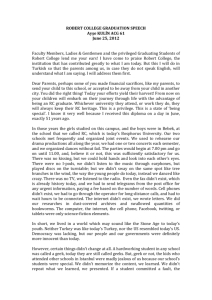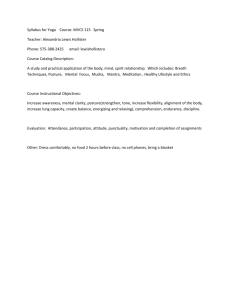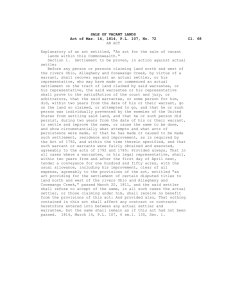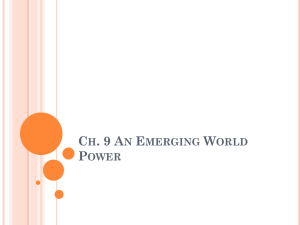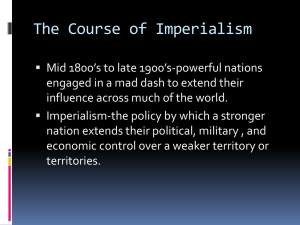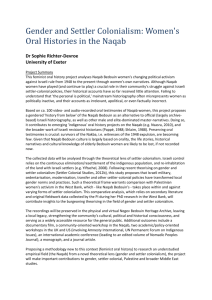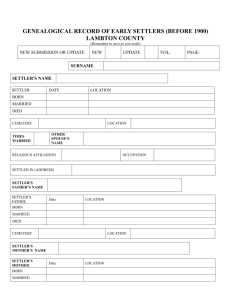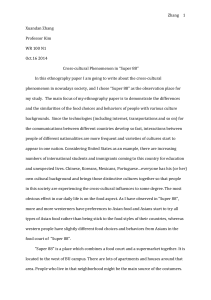Tropical Dependencies and Settler Colonies
advertisement
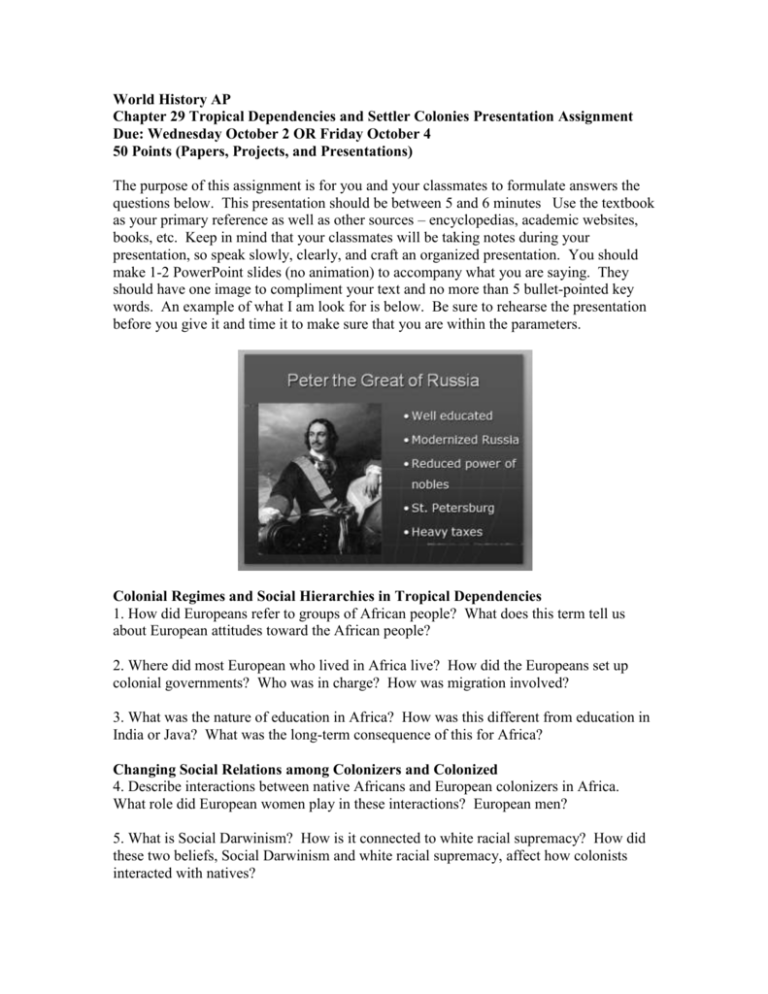
World History AP Chapter 29 Tropical Dependencies and Settler Colonies Presentation Assignment Due: Wednesday October 2 OR Friday October 4 50 Points (Papers, Projects, and Presentations) The purpose of this assignment is for you and your classmates to formulate answers the questions below. This presentation should be between 5 and 6 minutes Use the textbook as your primary reference as well as other sources – encyclopedias, academic websites, books, etc. Keep in mind that your classmates will be taking notes during your presentation, so speak slowly, clearly, and craft an organized presentation. You should make 1-2 PowerPoint slides (no animation) to accompany what you are saying. They should have one image to compliment your text and no more than 5 bullet-pointed key words. An example of what I am look for is below. Be sure to rehearse the presentation before you give it and time it to make sure that you are within the parameters. Colonial Regimes and Social Hierarchies in Tropical Dependencies 1. How did Europeans refer to groups of African people? What does this term tell us about European attitudes toward the African people? 2. Where did most European who lived in Africa live? How did the Europeans set up colonial governments? Who was in charge? How was migration involved? 3. What was the nature of education in Africa? How was this different from education in India or Java? What was the long-term consequence of this for Africa? Changing Social Relations among Colonizers and Colonized 4. Describe interactions between native Africans and European colonizers in Africa. What role did European women play in these interactions? European men? 5. What is Social Darwinism? How is it connected to white racial supremacy? How did these two beliefs, Social Darwinism and white racial supremacy, affect how colonists interacted with natives? Shifts in Methods of Economic Extraction 6. What “incentives” did Westerners give locals to produce more and increase exports from their countries? Please discuss the situation in the Belgian Congo specifically as an example to illustrate the question above. 7. What improvements to infrastructure did the Europeans make to African countries? What motivated them to do this? Why did these improvements do little to help the lives of natives? White Settler Colonies in South Africa and the Pacific 8. What is the difference between a “tropical dependency” and a “settler colony”? Give examples of both. How did the settler societies of the 19th century differ from those of the 18th century? Give a reason for these differences. South Africa 9. When did the Dutch establish their first colony in South Africa? Who were the Boers? Who were the coloreds? When did the British arrive in South Africa? Name the differences between the British and the Boers? How did these conflicts lead to tension between these groups of people? 10. What was the Great Trek? Who did the Boers find living in the interior of the African continent? How did they interact with these people? How did these interactions differ from pervious interactions with Africans? 11. Where did the British establish their major outpost? Where did the Boers establish their two republics? What was found in the Orange Free State that changed relations between the British and the Dutch? Who was Cecil Rhoads? What was the Anglo-Boer War about? Who emerged as the victor? Pacific Tragedies New Zealand 12. Why was outsider contact with groups of people in the Pacific Islands so devastating? Who were the first group to have contact with people from New Zealand? What was the outcome of these contacts for the Maori? What was the second group to have contact? What was the outcome? What was the long-term outcome of Maori contact with outsiders? Hawaii 13. When did Hawaii begin to have contact with “outsiders”? Why were they at first welcoming of Westerners? How did Westerners change Hawaiian culture? 14. How did the population of Hawaii change after Westerners arrived? How did the economy change? Who eventually annexed Hawaii in 1898? Why is Hawaii’s situation more complicated than that of other settler colonies? Name _______________________________________ Hand in this rubric BEFORE you give your presentation. Category Poor (4) Fair (6) Good (8) Organization Student presents Audience cannot Audience has information in understand difficulty logical presentation following sequence because there is presentation which no sequence to because student audience can the information. jumps around. follow. Student has adequate poise and posture, occasionally Student has uses eye no poise and contact, but poor posture, reads most of reads report with the report. no eye contact, Student’s voice Visual Aspects of mumbles, is low. Student Speaker/ Eye incorrectly incorrectly contact/Elocution pronounces pronounces terms, or speaks terms. too quietly for Audience other in the class members have to hear. difficulty hearing presentation. Content Student is clearly underprepared. His or her classmates will almost fully need to read the material in the book themselves to understand the content. Student answers questions well, but is missing information or presentation seems incomplete. Student has good poise and speaking posture, maintains eye contact most of the time, but frequently returns to notes. Student speaks clearly, pronounces most words correctly, and most audience members can hear presentation. Student is missing substantial pieces of information on the topic and seems quite underprepared. Excellent (10) Student presents information in logical, interesting sequence which audience can follow. Student shows professional-level poise and posture, maintains eye contact with audience, seldom returns to notes, and uses a clear voice and correct, precise pronunciation of terms so audience can hear presentation. Student answers question fully and completely; coordinates with group members when necessary. Visual Aid Image on slide is visually interesting and related to the content. Key words help audience follow presentation. Time Presentation is less than 4:30 or more than 5:30 Image is weakly Image is connected to appropriate. content. Key Key words are words are adequate. confusing or inadequate. Image does not match content or is too general to be effective; too few or too many words on the slide. Presentation is between 4:30 and 5:30
